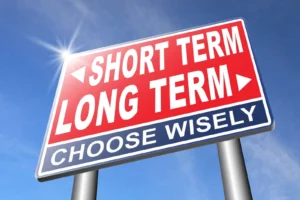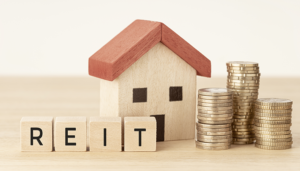People who want to build long-term wealth, earn passive income, and potentially receive tax deductions should consider investing in rental properties. This detailed guide covers the basics of rental property investing and provides useful information for both new and experienced owners.
1. Understanding the Basics of Rental Property Investment
Investing in rental properties means that you buy a house and rent it to people. The money from the rent can help you pay the mortgage, property management fees, repairs, and maybe even save some to make a profit. Your net worth increases as you pay off your debts and the value of your property increases over time. This makes the property a good long-term investment.
2. Choose the Right House
Choosing the right real estate is important for the success of your business. Location is very important. Properties located in high-demand rental areas, such as those near universities, business districts, or tourist attractions, tend to have higher rents and lower vacancy rates. It is also important to consider how your property will be maintained. Although repairers are cheaper, they may have to make repairs right away that cost a lot of money. New or well-maintained homes may cost more initially, but they will save you significant money on repairs in the long run.
3. Financing Your Investment
Most owners do not buy a rental property with cash but get a mortgage to cover the costs. Understanding the different types of mortgages and choosing the right one can have a big impact on how much money you make from your business. You should carefully consider your mortgage terms, interest rate, and loan terms. A good credit score and a large down payment are also important for investors to get the best loan rates.
4. Calculate Profits and Losses
To understand whether investing in a rental property is a good idea, compare your expected income with any costs. Costs include mortgage, property taxes, insurance, maintenance, and management costs (if you do not want to manage the property yourself). After you subtract these costs from the rent you receive, the amount left is your return. But it’s also a good idea to set aside some of your rental income in case a quick fix is needed or a vacancy arises.
5. Understand the Market
Market conditions can have a significant impact on your rental plans and your ability to make money. What people are willing to hire and how much to charge can be influenced by factors such as the local economy, employment rates, and future growth plans for the area. Investors need to understand what is happening in their markets and change their plans as necessary.
6. Protect your Property
Property management is important if you want to preserve the value of your investment and guarantee stable rental income. Investors must decide whether they want to take care of the property themselves or hire a company to do it for them. Self-management can save you money but requires a lot of time and understanding of the legislation for landlords and tenants. A professional property manager can handle the day-to-day tasks and ensure you are compliant. This is especially useful if you own more than one rental property or do not live near your rental property.
7. Legal Thinking
There are also legal issues to consider when investing in rental properties. For example, you need to know the rules for landlords and tenants in your state or country. The rules cover a wide range of topics, from the size of the band to how people are evicted and their maintenance responsibilities. In addition, you must have a good rental agreement in which the terms and conditions of the rental agreement are laid down. This can help you avoid future run-ins with the law.
8. Tax Lessons
There are tax benefits available for renting out your home, which can have a major impact on your investment profit. Normally, expenses such as mortgage interest, property taxes, repairs, and wear and tear can be deducted from your income, reducing your overall tax bill. It is best to contact a tax professional. They can give you advice specifically tailored to your situation and help you make the most of these benefits.
9. Abandon the Plan
Before you spend any money, think about your long-term goals and how you plan to end the transaction. You should have a clear plan for what you will do with your investment throughout its life, whether you want to sell the property or keep it for your children. Your exit strategy should be based on factors such as market conditions, your financial goals, and tax implications.
10. Organize your Portfolio
If you want to further diversify your investments, buying a rental property can help you make more money and feel more secure about your finances. Investors can spread their risk across different markets and different types of properties by owning more than one property. This could lead to a more stable and higher income.
Conclusion
Investing in rental properties, if done right, can be a very profitable venture. You need to know a lot about the real estate market, be good at managing money, and be proactive in taking care of the real estate. If you do your research and make smart choices, investing in rental properties can be very profitable and provide a stable source of income for years to come.
FAQs
1. What are the main advantages of buying to rent?
When you invest in a rental property, you may receive passive income, your property value will increase, your investment portfolio will become more diversified, and you may even get a tax deduction.
2. How do you choose the best place to rent?
Choosing a location depends on how many people want to rent, how many jobs there are in the area, how close it is to amenities such as schools, hospitals, and public transportation, and the overall economic stability of the area. Places with growing populations and labor markets are generally good choices.
3. What should I pay attention to when getting a loan to buy a rental property?
When taking out a mortgage to purchase a rental property, you’ll need to consider the down payment required, interest rate, mortgage type, and your credit score. Talk to a few lenders to get the best terms, and consider how the mortgage type will affect your long-term bills.
4. How do I calculate how much money I can make by renting out my home?
Add up all your expenses, such as a mortgage, taxes, insurance, maintenance, and management costs. To understand profitability, pull these numbers from expected rental income. Also, consider the possibility of property appreciation.
5. Should I hire a property manager or take care of the property myself?
This choice will depend on your availability, your experience managing properties, how far you live from the property, and your willingness to deal with tenant issues. Hiring a property manager means you can spend less time and energy managing the property.
6. What legal matters should you pay attention to when renting a home?
You need to know the landlord-tenant laws in your area. These laws cover things like security deposits, how to get evicted, and your rights as a tenant. Talk to a real estate attorney to make sure you follow the rules and avoid legal problems.




